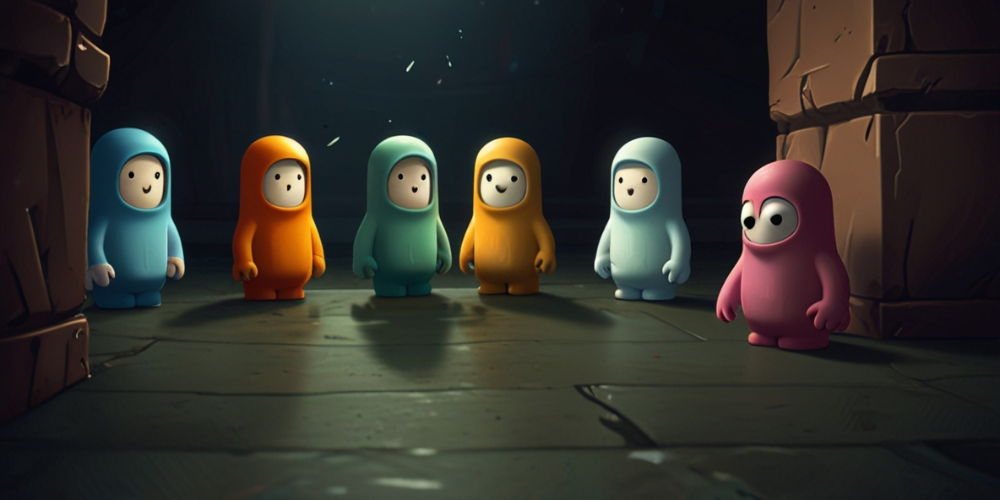The Social Phenomenon of Among Us: Fostering Trust and Deception in Online Play
- Jul 23, 2024
- 1615

As I dove into the vibrant world of online gaming, I stumbled upon a multiplayer game that piqued my interest instantly: Among Us. Launched in 2018 by InnerSloth, it surged in popularity in 2020, particularly during the pandemic when social interaction craved new avenues. I quickly found out that this game wasn't merely about colorful crewmates and suspicious characters; it beautifully encapsulated trust and deception, wrapping them into a compelling social experiment.
The Straightforward Mechanics
At its core, Among Us is simple. Up to ten players are placed on a spacecraft, tasked with completing various objectives to secure their journey home. However, among the colorful crewmates, one or two players are impostors with a sinister agenda. As I familiarized myself with the game, it became clear to me that the fun didn't solely stem from the tasks but rather from navigating the social dynamics among players.
The Role of Uncertainty
Each game begins with a sense of uncertainty. As a crewmate, I often felt anxious, unsure of who to trust. On the flip side, when I played as the impostor, an exhilarating mix of thrill and dread flooded my senses. The imposter must manipulate others while remaining undetected, creating an intricate balance of deception.

Social Interaction and Communication
The game thrives on communication. When accusations fly during discussions, I witnessed people passionately defending their innocence while cleverly twisting the narrative against others. I learned quickly that how one speaks and constructs arguments plays a significant role in shaping perceptions. The chat feature can escalate emotions, leaving players flustered and sometimes even leading to friendships being tested in the process.
Body Language in a Virtual Space
Even in a digital context, body language manifests significantly. I found myself picking up on subtle cues from players that hinted at deception. A player who quickly pointed fingers might be trying to deflect attention from their own wrongdoing. In contrast, those who hesitated seemed more trustworthy, even if the game mechanics didn't offer traditional visual cues like facial expressions.
The Importance of Trust
Trust plays a pivotal role in gameplay, and I witnessed how difficult it was to maintain. When a player builds a reputation for being honest, they often become the de facto leader during discussions. In my experience, I realized that sometimes blindly trusting someone could lead to my downfall – a lesson learned after being systematically betrayed in multiple rounds.

Psychological Aspects of Impersonation
When stepping into the shoes of an impostor, I discovered that the psychological tension is unparalleled. Deception isn’t just about lying; it’s about constructing a facade of trustworthiness. I had to convince others of my integrity while simultaneously executing my plans. This psychological duality produced a unique spectrum of emotions, from anxiety to exhilaration.
Forging Alliances
I often found myself forming alliances, whether based on previous experiences or instinctual trusting. Collaborating with others to achieve the common goal of completing tasks allowed me to gather information while sharing suspicions. Discussions about who seemed sus became less about the tasks and more about forging connections and alliances to safeguard my gameplay.
The Impact of Group Dynamics
The dynamics among the players significantly affect the game's outcome. I saw how pre-existing friendships or rivalries influenced perspectives during discussions. Some players leveraged their social connections to sway opinion, while others found themselves ostracized if suspicion fell upon them. The power play and social maneuvering added layers of strategy that transformed the game from simple tasks to an elaborate dance of deceit.

Voting: An Emotional Turn
The voting mechanism is a critical juncture in the game. It holds the potential to leave players feeling vindicated or devastated. With every vote cast, relationships potentially hang in the balance. I vividly remember occasions when innocent players faced the wrath of mob mentality, leading to hasty decisions based on flimsy evidence or mere suspicion. The emotional fallout of these votes often resulted in fierce debates and intensified distrust.
Group Tension and Sabotage
A key element of the impostor's strategy involves sabotage. I noted how an expertly timed disruption could throw crewmates into chaos, fostering paranoia. During these moments, I often felt torn between fear and excitement of the strategic play. Impostors using sabotage to create confusion not only accelerated their agenda but also highlighted the fragility of trust in high-pressure scenarios.
Online Communities and Shared Experiences
As my interest in Among Us grew, so did my engagement with the online community. Players worldwide shared their hilarious, frustrating, and shocking moments. This collective experience fostered a sense of camaraderie, where I could relate to others through storytelling. The shared level of deception united players, creating a unique community where we could bond over our experiences of betrayal and alliance.
Memes and Cultural Impact
The game's cultural imprint is hard to ignore. Memes featuring phrases like “sus” or “emergency meeting” popped up everywhere. These phrases transcended the game and entered everyday conversations, highlighting how pervasive this social phenomenon became. I found myself quoting these sayings casually, especially during discussions about trust and friendship in my personal life.

Lessons Beyond the Game
Playing Among Us isn't just a pastime; it offers intriguing reflections on human behavior. I discovered insights into how easily trust could be manipulated, and how social dynamics impact decision-making. Learning to gauge motives and intentions while navigating relationships became a fascinating study on the human psyche. These lessons seeped into my interactions outside the game, making me more aware of the deceptive layers people might present.
Virtual Reality and Future Innovations
As I envisioned the future of online gaming, I couldn't help but anticipate innovations like virtual reality integration. Imagine immersing myself in a 3D space, surrounded by vibrant characters while embodying a crewmate or impostor. This development could amplify trust and deception dynamics, making the social experiment even more engaging and immersive.
Final Reflections on a Social Experiment
Among Us isn’t merely a multiplayer game; for me, it serves as an exploration of human interaction. The balance of trust, deception, and the emotional rollercoaster that comes with it encapsulates a fascinating social experiment. Through the vibrant gameplay and engaging community, I’ve found a new appreciation for how we connect, communicate, and understand one another in an increasingly digital world.